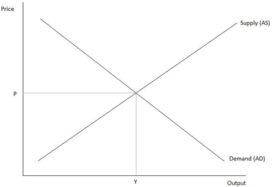What is Price Discovery?
Price discovery refers to the act of determining the proper price of a security, commodity, or good or service by studying market supply and demand and other factors associated with transactions.
How Does Price Discovery Work?
In a simple sense, price discovery involves finding where supply and demand meet. As you may recall from Economics 101, the market price is the price at that intersection of supply and demand.

Though analysts and economists work hard to determine the exact shapes and locations of demand and supply curves, in reality it's virtually impossible to know these things with certainty. (This is also why so much research attempts to explain what exactly causes securities prices to change.) Nevertheless, the interaction of supply and demand lies at the heart of price discovery.
However, proper price discovery also depends on the number, size, location, and competitiveness of buyers and sellers, as well as the behavior of the buyers and sellers. The amount, timeliness, and reliability of market information and price reporting are also crucial. In turn, individual transaction prices reflect a number of factors, but they usually revolve around a general market price at any given point in time.
Why Does Price Discovery Matter?
Price discovery is what gets a specific buyer and specific seller to move from a establishing a general price to agreeing on a specific price for their transaction, based on the size of the transaction, location of the transaction, cost of the transaction, and many other factors. It is a dynamic process, and in a way, it is the true mission of any market and any exchange.



